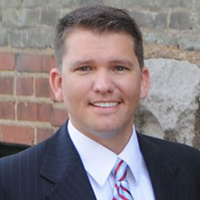Nashville Criminal Lawyer, Tennessee
William H. Stover
✓ VERIFIEDWilliam Stover is an experienced Tennessee attorney who provides premier legal services to clients seeking help in the areas of personal injury, crimi... (more)
Thomas Travis Overton
✓ VERIFIEDI am Tommy Overton, and I have represented hundreds of clients for over 30 years as a criminal defense lawyer in Nashville, Tennessee. If you have bee... (more)
Michael Joseph Flanagan
✓ VERIFIEDPracticing since 1981, Mike has seen it all. Mike is an excellent trial attorney. He is both a master of the law and quick on his feet. No case is t... (more)
John Michael Ballard
✓ VERIFIEDJohn Ballard is a third generation attorney following in the footsteps of his grandfather, Jack Butler, and his father before him, General Howard Butl... (more)
Will Hall Poland
✓ VERIFIEDWhat to know: We are a full-service law firm that focuses on the interest of our clients. I practice in the areas of: Bankruptcy Law, Criminal Law, Co... (more)
David L. Raybin
FREE CONSULTATION
CONTACTFREE CONSULTATION
CONTACTFREE CONSULTATION
CONTACT





